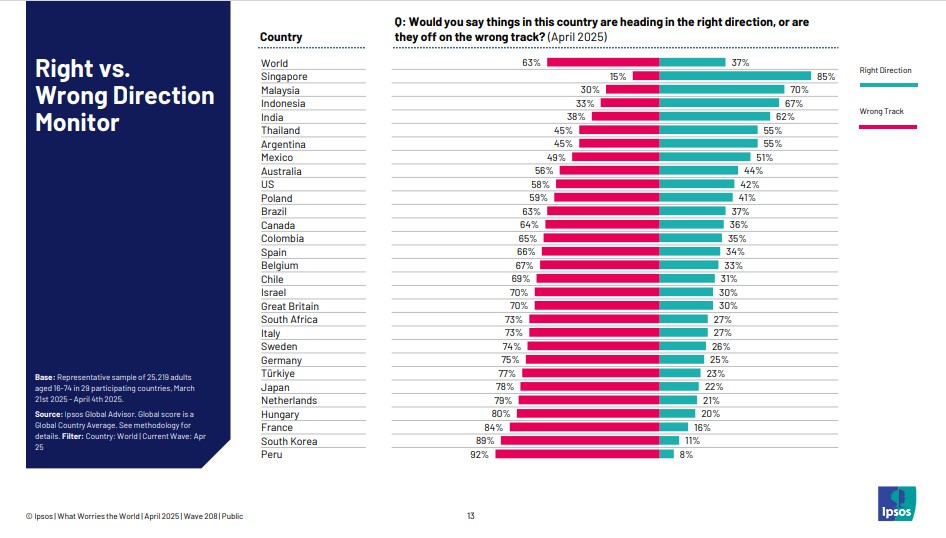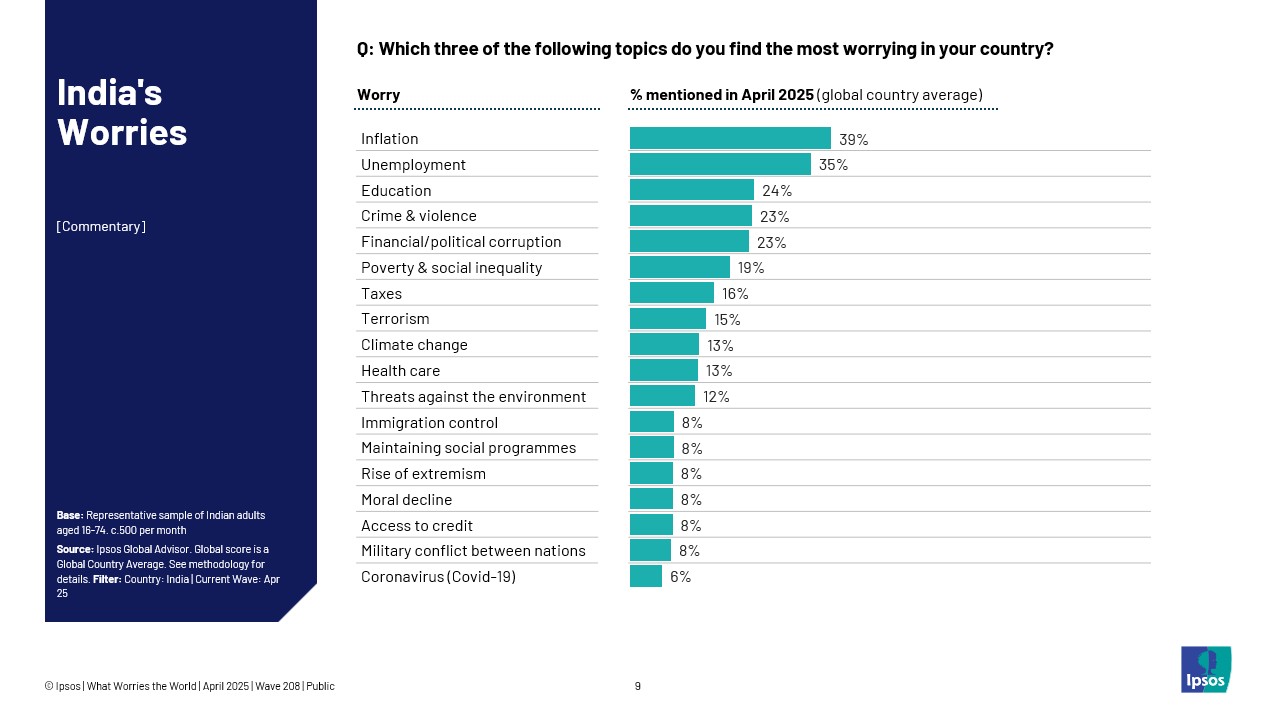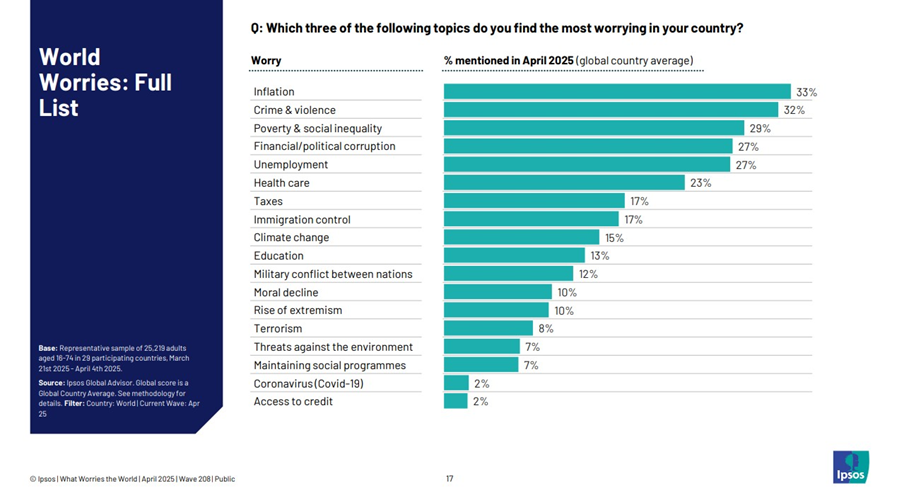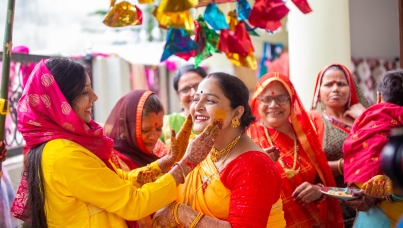

India retains 4th rank in optimism, with 6 in 10 citizens believing country is moving in right direction: Ipsos What Worries the World
The April wave of the Ipsos What Worries the World survey shows India retaining its 4th rank in optimism, like the last wave, with 6 in 10 citizens (62%) hopeful of a great future The most buoyant markets were of global south, including India. While more number of global citizens and citizens of Peru, South Korea and France were pessimistic about the future.
The markets of global south occupying top ranks were dominated by the APEC markets of Singapore (85%), Malaysia (70%), Indonesia (67%), India (62%) and Thailand (55%). Followed by Argentina (55%)

Amit Adarkar, CEO, Ipsos India shed light on the findings. "We have the global advantage of being geographically away from both Ukraine and Gaza, the epicentres of wars. India and the other global south markets have largely been driven by domestic consumption and domestic economy. And India also has the demographic dividend, leading to economic growth.This survey was conducted before the Trump tarriffs were announced (with a 90 day pause to reciprocal tariff) and before the Pahalgam terror strike took place. These events have heightened anxiety and fear among citizens which have not been captured in the current wave. India being a strong economy and a resilient market, it will continue to stay on grid. But the unrest at the borders and the looming reciprocal tariffs by the Trump govt could lead to a strong impact on India’s fortunes."
Inflation remains the top global and local issue
“Ipsos’ What Worries the World survey tracks public opinion on the most important social and political issues across 29 countries today. And inflation continues to impact both global and local citizens with high cost of living, as a consequence of global economic slowdown, wars in Gaza and Ukraine and now with tough measures by the Trump regime on the anvil, in terms of job cuts and reciprocal tariffs, we are bracing for tougher times ahead. With the terror strike in Pahalgam and India’s tough call, the citizens are likely to bear the brunt of these new developments, with increase in prices of essential commodities and slowdown in inbound travel of foreign tourists, impacting the economy," added Adarkar.
Top worries of Indians

And top worries of global citizens

"Govts should focus on their local worries to provide reprieve to citizens, as these concerns weigh heavily on them," stated Adarkar.
Methodology
This 29-country Global Advisor survey was conducted between March 21st 2025 and April 4th 2025 via the Ipsos Online Panel system among 25,219 adults aged 18-74 in Canada, Israel, Malaysia, South Africa, Türkiye and the United States, 20-74 in Indonesia and Thailand, 21-74 in Singapore, and 16-74 in all other nations.The “Global Country Average” reflects the average result for all the countries where the survey was conducted. It has not been adjusted to the population size of each country and is not intended to suggest a total result." The sample consists of approximately 1000+ individuals in each of Australia, Belgium, Brazil, Canada, France, Germany, Great Britain, Italy, Japan, Spain, Sweden, and the US, and approximately 500+ individuals in each of Argentina, Chile, Colombia, Hungary, Indonesia, Israel, Malaysia, Mexico, the Netherlands, Peru, Poland, Singapore, South Africa, South Korea, Thailand and Türkiye. The sample in India consists of approximately 2,200 individuals, of whom approximately 1,800 were interviewed faceto-face and 400 were interviewed online. The samples in Argentina, Australia, Belgium, Canada, France, Germany, Great Britain, Hungary, Italy, Japan, the Netherlands, Poland, South Korea, Spain, Sweden, and the US can be taken as representative of these countries’ general adult population under the age of 75. The samples in Brazil, Chile, Colombia, India, Indonesia, Malaysia, Mexico, Peru, Singapore, South Africa, Thailand and Türkiye are more urban, more educated, and/or more affluent than the general population. The survey results for these markets should be viewed as reflecting the views of the more “connected” segment of these populations. India’s sample represents a large subset of its urban population — social economic classes A, B and C in metros and tier 1-3 town classes across all four zones. Weighting has been employed to balance demographics and ensure that the sample’s composition reflects that of the adult population according to the most recent census data. The precision of Ipsos online polls are calculated using a credibility interval with a poll of 1,000 accurate to +/- 3.5 percentage points and of 500 accurate to +/- 5.0 percentage points. For more information on the Ipsos use of credibility intervals, please visit the Ipsos website. Where results do not sum to 100 or the ‘difference’ appears to be +/-1 more/less than the actual, this may be due to rounding, multiple responses, or the exclusion of don't knows or not stated responses The publication of these findings abides by local rules and regulations.



